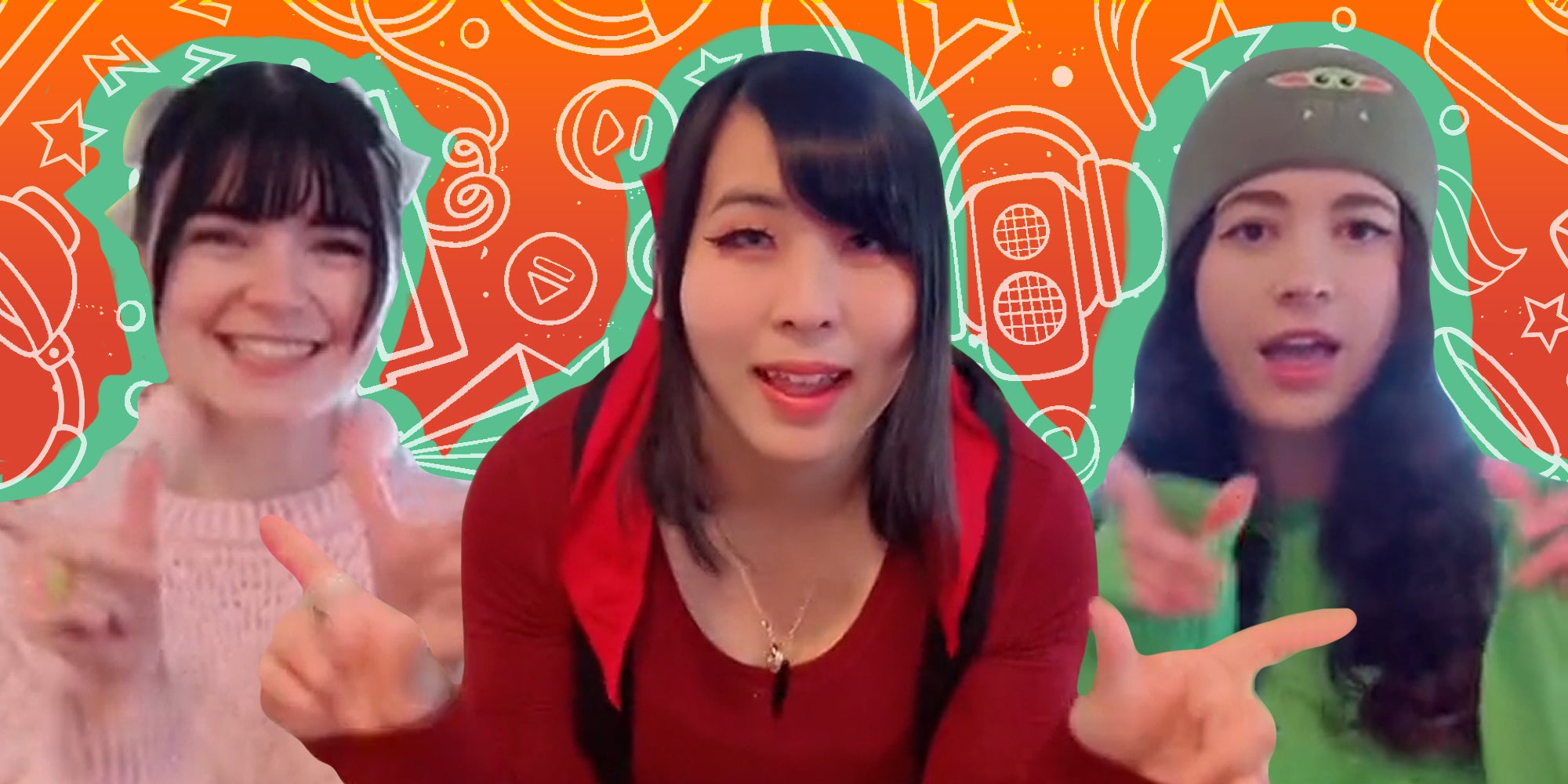
California-based indie idol group Sorb3t hasn’t even released any music yet. They have, however, found themselves at the center of a TikTok controversy after releasing a video featuring one of its white members adopting an Asian accent.
Made up of Alice, Berry, and Ashe, the trio has been working on content as a group since January, often posting clips such as viral dance routines and photo carousels of their in-person performances. On May 25, they posted a clip taking their 44,000 followers through call-and-response chants, telling their fans how they’d like to be cheered for at future shows. The content was intended to drum up interest after their first public performance at an ice cream parlor in Garden Grove, California, on May 21. But things quickly went south.
In the clip, Berry, who is white, instantly drew public backlash for performing her chant of “Strawberry! Blueberry!” in an Asian accent. She’s since apologized, saying, “I truly did not have any ill intent, but I also understand that I have hurt a lot of people.” The fan response has been mixed. One comment read, “Berry making an apology video 2 mins into her career, bye!” while another was more positive: “Honestly tho kudos to her for that bc that is actually a responsible and mature response.”
The controversy has caused some creators to question whether it’s possible—or appropriate—for white people to assimilate into J-Pop, a genre that’s so closely tied to Japanese culture. Ashe is the only member of Sorb3t who is Asian; Alice is also white. Their performances and aesthetic are bubblegum pop, leaning heavily into Japan’s Harajuku fashion. While Sorb3t’s style is distinctly Japanese, issues of appropriation in online music communities are not unique to J-pop.
Fellow French TikTok idol group Ice Qream has also been accused of appropriation, with viewers questioning whether their adoption of Japanese pop culture is appropriate. Though the trio isn’t adopting foreign accents in their content, fans criticized their choice to wear schoolgirl uniforms and fake forgetting their choreography while performing a dance routine.
TikTok creators have also used the platform to discuss ongoing appropriation issues with international stars such as Gwen Stefani, who came under fire after using Harajuku dancers while creating her solo album Love. Angel. Music. Baby in 2004. Though some users think she was initially appreciative rather than appropriative, many agree that the commercial marketing for her music ended up selling the culture out for profit. Stefani, for her part, doesn’t seem to have much remorse for the whole affair, telling Allure earlier this year, without a hint of sarcasm or irony, “I’m Japanese!”
Sorb3t has been mostly quiet since the initial dustup, and days after, the group claimed that they had been doxxed and were taking “some time away to heal.” They haven’t posted as a group since the end of May, though Ashe has since addressed claims separately.
Berry’s mea culpa has been heavily criticized for appearing “too textbook” and insincere, and there doesn’t seem to be a consensus about the situation among fans. One TikTok user commented, “Getting doxxed before releasing a single song is crazy,” while another stated, “I can’t believe how cruel the internet is. People are really comfortable being actual villains to 3 girls dancing and having fun on TikTok.”
Sorb3t turned from happy-go-lucky teenagers to reviled internet creators in an instant, and the whole debacle shows that the line between cultural appreciation and appropriation is thin. And just because Western audiences can consume Japanese culture—or any culture for that matter—so omnivorously, does it mean they should perform it? Certainly not without limits.
Japanese culture deserves respect, and honor and appreciation play a huge role in its richness. Content creation that requires rapid-fire production can flatten those elements and often misses the mark. For example, there’s also a subgenre of foreign creators highlighting parts of Japanese life in an often romanticized way, which makes the culture seem trivialized and far removed from its roots. Groups like Sorb3t that mimic the Japanese culture without having the lived experience miss the mark, and although Sorb3t claims their version of J-Pop is an homage to a genre they love, the way they share their passion seems performative rather than genuine.
TikTok blurs the line between consuming a culture and assimilating into one. But not everything needs to be replicated—especially by creators who are non-natives. In this case, perhaps listening to—and appreciating—J-pop music is enough, and creators should be mindful of that. Culture, as the saying goes, is not a costume.
Update, July 24, 12:15pm CT: Sorb3t announced they disbanded their group due to fears of safety after being doxxed and harassed.




